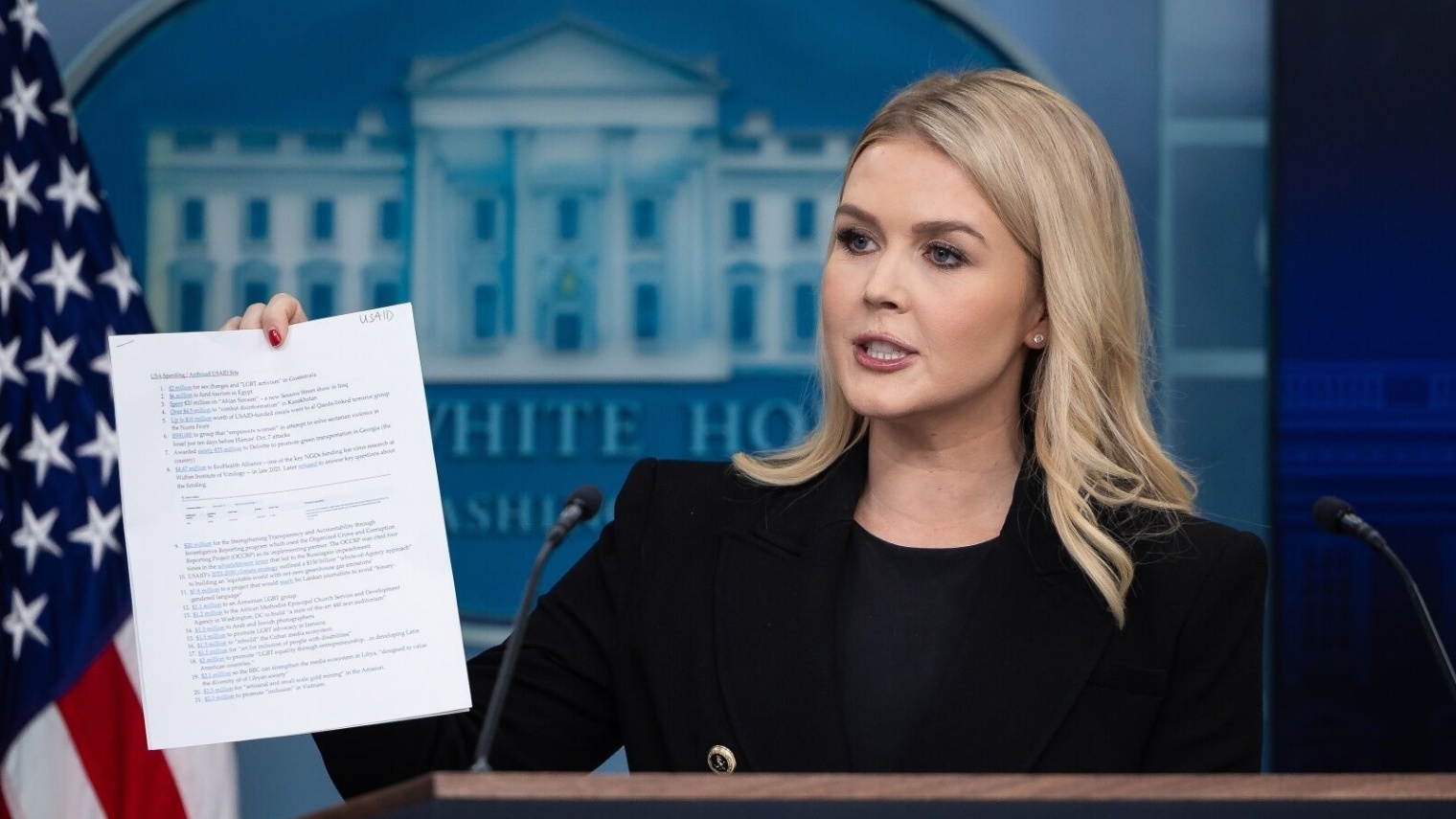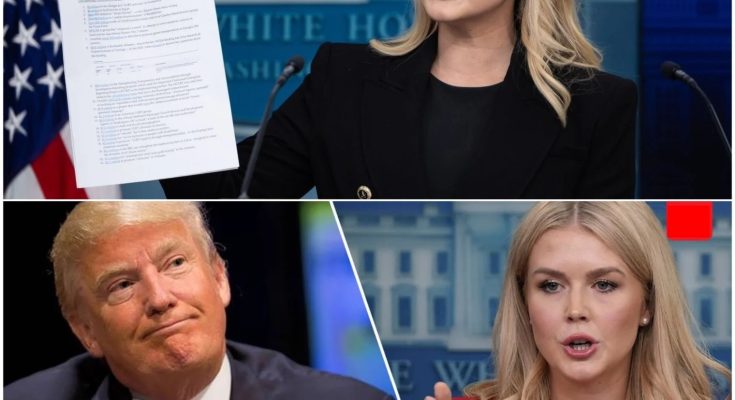Karoline Leavitt Faces Tough Questions on Trump’s Stance Following Ukraine’s Strike on Russian Military Assets
During a high-stakes White House press briefing, Press Secretary Karoline Leavitt was pressed on President Donald Trump’s position following Ukraine’s recent high-profile strike on Russian military assets. The strike, which took place in the ongoing conflict between Ukraine and Russia, has drawn global attention and raised questions about the U.S.’s role in the conflict and the future of international diplomacy. Leavitt, tasked with addressing these sensitive issues, fielded a series of pointed questions regarding Trump’s views, U.S. defense preparedness, and the broader implications for global security.
Trump’s Stance on the Ukraine-Russia Conflict
One of the key moments of the briefing was when Leavitt was asked to clarify former President Trump’s position on Ukraine’s recent military actions against Russia. The U.S. has supported Ukraine with military aid and sanctions against Russia, but the stance of Trump, who has expressed admiration for Russian President Vladimir Putin in the past, has caused concern among critics.

Leavitt responded carefully, stating, “While President Trump has been critical of President Putin’s actions in the past, his administration’s record on foreign policy demonstrates a clear commitment to supporting U.S. interests and standing firm on national defense. However, we must remember that Ukraine’s actions are their own, and the U.S. is focused on ensuring that Ukraine has the tools to defend itself against Russian aggression.”
She further emphasized that President Trump’s stance, as it relates to Ukraine, is one of “supporting peace and stability in the region,” while also maintaining a firm position on American defense and military readiness.
U.S. Defense Preparedness and Drone Warfare Policy
Leavitt was then pressed on U.S. defense preparedness in the face of ongoing international conflicts, particularly with regard to drone warfare and the role of advanced technology in modern military tactics. The question centered on how the U.S. is positioning itself to deal with new threats in an era of increasingly sophisticated weaponry, including drones, which have played a major role in recent conflicts.
Leavitt affirmed that the U.S. is committed to remaining at the forefront of defense technology, including drone warfare, while ensuring that any use of such technology is consistent with international law and the principles of peacekeeping.

“The U.S. military has long been a leader in technological innovation, and we are fully aware of the growing threats posed by drones in modern warfare,” Leavitt explained. “However, it is important to note that every action taken by the U.S. military, including drone strikes, follows strict protocols and is conducted with the utmost regard for international law and human rights.”
The briefing also delved into the broader implications of drone warfare, which has seen increasing use by various nations, including Russia, China, and non-state actors. Leavitt highlighted the need for robust international agreements on the use of drones to prevent conflicts from escalating further.
International Conflict Mediation
Another key aspect of the briefing focused on U.S. policy toward international conflict mediation. With the ongoing war in Ukraine, tensions with China over Taiwan, and a rapidly changing geopolitical landscape, the U.S. has faced increasing pressure to step up its role as a global mediator.
Leavitt was asked about President Biden’s diplomatic efforts and how the administration plans to balance military support with diplomacy in ongoing international crises.
“Our priority remains clear: we are committed to supporting democratic nations and ensuring global stability,” Leavitt said. “At the same time, we recognize the importance of diplomacy. President Biden is actively engaging with global leaders to seek peaceful solutions to conflicts, while also ensuring that the U.S. is prepared to defend its interests and stand with its allies.”
Leavitt also addressed the importance of strengthening NATO alliances and working with international partners to foster dialogue and find solutions to regional conflicts. “Peace through diplomacy remains the long-term goal, but we must also ensure that our defense posture is strong enough to deter aggression and protect our interests.”
The Role of the U.S. in Global Security
Throughout the press briefing, a consistent theme emerged about the U.S.’s role in global security, especially in relation to Ukraine’s military operations and the growing threat of drone warfare. Leavitt emphasized that the U.S. will continue to support its allies while advocating for peaceful resolutions to conflicts. She also underscored the importance of maintaining a strong defense infrastructure, both in terms of technology and international alliances.
“The United States will always be a global leader in defending freedom, democracy, and the rule of law,” she said. “We will continue to work alongside our allies to ensure that aggressive actions, like those of Russia, do not go unchecked, while also encouraging diplomatic solutions whenever possible.”
Conclusion: Navigating Complex Geopolitical Challenges
The press briefing ended with Leavitt reiterating the U.S. commitment to standing firm against Russian aggression and supporting global peace efforts. As the situation in Ukraine continues to evolve, the U.S. faces growing pressure to balance military involvement with diplomatic outreach. Leavitt’s responses highlighted the delicate nature of U.S. foreign policy in the current global climate and underscored the administration’s focus on both military preparedness and conflict resolution.
The questions about Trump’s stance on Ukraine and the future of U.S. defense strategy are likely to remain in the spotlight as the conflict continues to unfold, and as tensions with other nations, such as China, remain high. The role of the U.S. in international diplomacy and defense remains a critical issue that will shape future policy decisions and global relations.
